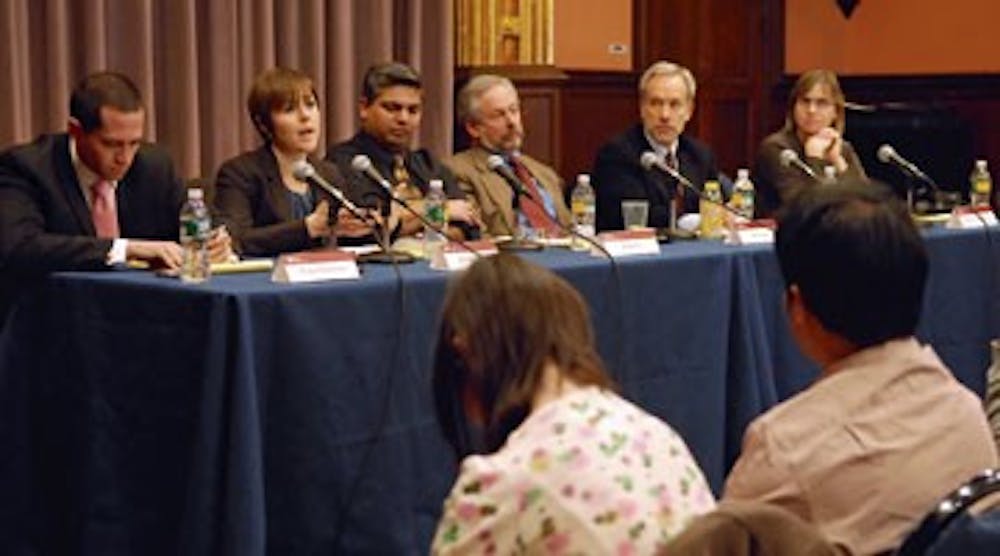When President Barack Obama declared in his inaugural speech two days ago that "America is a friend of each nation ... and we are ready to lead once more," many hoped that a new era had dawned in U.S. foreign policy.
With this in mind, Penn students and faculty members gathered yesterday in Houston Hall for an open discussion about the international challenges facing the Obama administration.
The event, called "Obama and the World," featured a panel of international politics experts from Penn's Political Science department.
As expected, America's role in the Middle East was a hot topic.
In particular, Political Science professor Ian Lustick lamented that blanket U.S. support for Israel has left both countries in an impossible position.
He attributed this state of affairs largely to the "stranglehold" that America's Israel lobby has on the Israel-Palestine issue, which "blocks any kind of sensible discussion."
Lustick also pointed to the stifling of legitimate Palestinian nationalist movements by Israel and the U.S. as a cause of the current situation.
"A whole generation has been excluded from politics due to the intransigence of U.S.-Israeli policy," he said, "and it is our own fault that militant Islamic groups have filled the vacuum."
He said priorities in the region must be to find a feasible process for the return of Palestinian refugees and to reach an agreement on a two-state solution.
As things stand, however, "the future for Israel is extremely bleak, if not non-existent," he concluded.
U.S.-Russia relations were also a subject of discussion, with Political Science professor Rudra Sil urging the need for the Obama administration to move away from a Cold War mentality and work to build trust between the two nations.
"Russia under Putin is not the same aggressive, idealistic country as it was before," he said, "but rather it is a nation seeking its place alongside the U.S. amongst the international top dogs."
In light of this, Sil argued for a more sensitive approach to Russia, focusing on understanding the internal dynamics of the country and developing areas for selective cooperation rather than on confrontation.
"Putin had a 70-percent popularity rating in Russia," he said. "We need to understand the reasons for this and not fixate on issues like corruption and human rights."
The urgency of the issues discussed seemed to excite students who attended the event.
"I found it really informative," said College freshman Abby Waldorf. "It was great to learn about these issues straight from specialists in the field."



